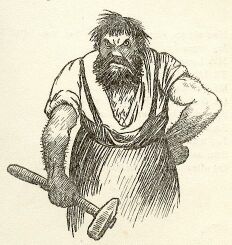Kozak or Kozák is a Slavic surname literally meaning "Cossack". Notable people with the surname or name include:
Yakovlev is an East Slavic surname derived from the masculine given name Yakov. Yakovleva is the feminine form.
Mraz or Mráz is a surname of Czech, Slovak, and Croatian origin. It means "frost" and is cognate to Maroz (Belarusian), Mróz (Polish), and Moroz. It may refer to:
Stepanov (Степанов), female Stepanova is a common Russian and Serbian surname that is derived from the male given name Stepan and literally means Stepan's. The Latvianized form is Stepanovs. Notable people with the surname include:
Moroz is a surname meaning "frost" in Ukrainian and Russian. The surname is particularly common in Ukraine and, to a lesser extent, in Russia. It is a cognate of Maroz (Belarusian), Mróz (Polish), and Mráz. Morozs is the Latvian adaptation of the surname.
Melnikov is a surname of Russian origin. Like many surnames, it derives from an occupation. The root "мельник" (melnik) meaning miller, means 'one who mills grain'.
Ivanov, Ivanoff or Ivanow, or Ivanova is one of the most common surnames in Russia and Bulgaria. The surname is derived from the male given name Ivan and literally means "Ivan's".
Smirnov or Smirnova is one of the two most common surnames in Russia. Smirnov is derived from an adjectival nickname smirnyj, that means "quiet, still, peaceful, gentle".
Sobol is a surname derived from the Slavic word sobol ("sable"), which may also have been a nickname for a fur trader. As a Yiddish surname, it may be a variant of Sobel, which also derives from sobol. It may refer to:
Krejčí is a Czech surname meaning tailor. Notable people include:

Kováč, feminine: Kováčová, is a surname in Slovakia.
Svoboda is a common Czech surname. Svobodová is a feminine form of the surname. For more than century it is one of the three most common Czech surnames.
Timofeyev or Timofeyeva is a common Russian surname that is derived from the male given name Timofey and literally means Timofey's. It is shared by the following people:
Ihnatenko or Ignatenko is a gender-neutral Ukrainian surname. It may refer to:
Tichý is a Czech surname meaning literally "quiet" or "silent". Notable people include:
Sedláček is a Czech surname. It is a diminutive of Sedlák, which means a 'peasant farmer' or 'freeman farmer' who was relatively wealthy and owned his own land. Since the time of Austria-Hungary, which included Czech lands, the surname is also known under German and Hungarian spellings.
Pavlenko is a patronymic surname of Ukrainian origin. The surname is a derivative of the given name Pavlo.
Tarasenko or Tarasenka is an East Slavic surname, derived from the male given name Taras. It may refer to:
Karasyov, Karasyow or Karasev is an East Slavic male surname which is mostly to find in Russia. its feminine counterpart is Karasyova or Karaseva. It may refer to:
Sokolovsky is a masculine Russian surname, with feminine form Sokolovskaya. Derived from the word sokol, "falcon". Polish form: Sokołowski, Lithianian: Sakalauskas, Latvian: Sokolovskis, Belarusian: Sakałoŭski/Sakalowski.
This page is based on this
Wikipedia article Text is available under the
CC BY-SA 4.0 license; additional terms may apply.
Images, videos and audio are available under their respective licenses.

